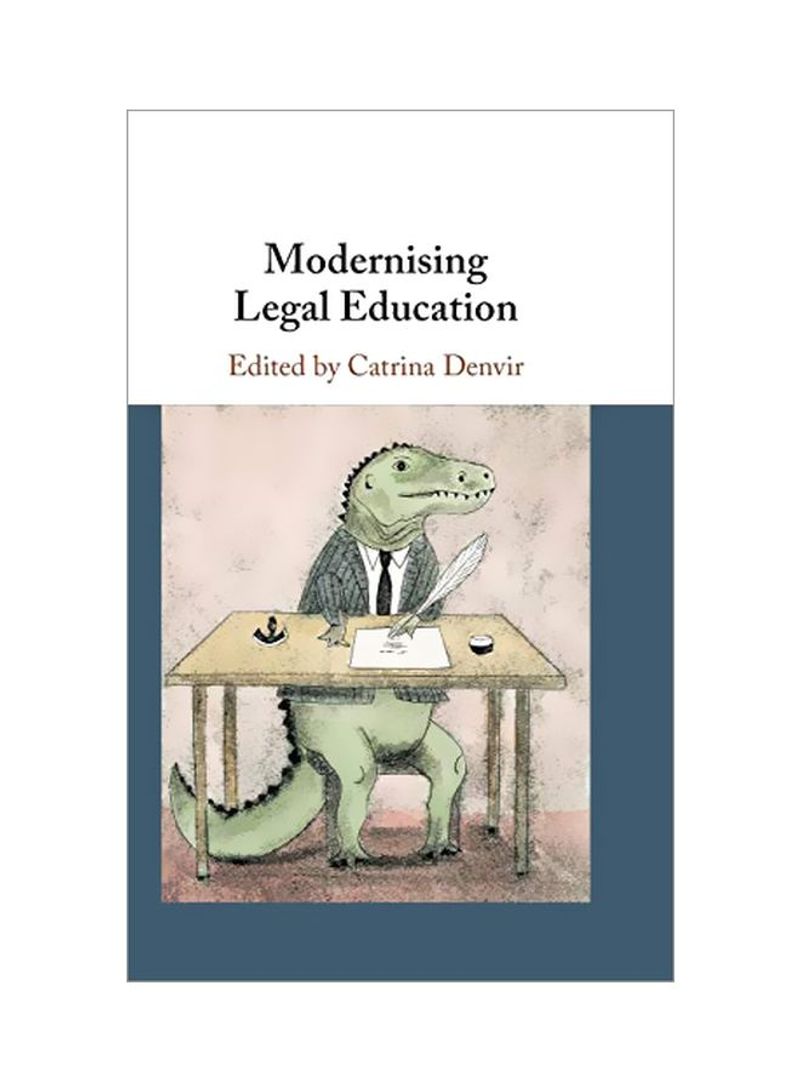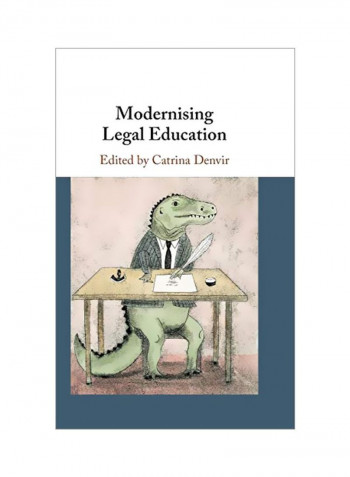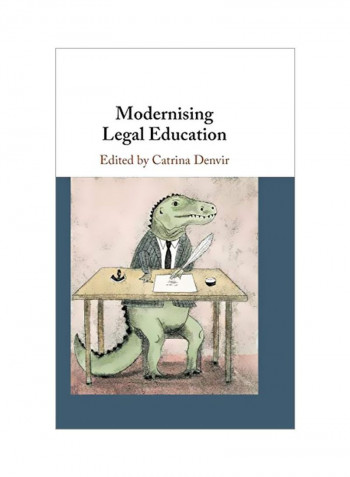Modernising Legal Education Hardcover
Recommend
Sort by
Rating
Date
Specifications
Author 1
Denvir, Catrina
Book Description
Over the last decade, cost pressures, technology, automation, globalisation, de-regulation, and changing client relationships have transformed the practice of law, but legal education has been slow to respond. Deciding what learning objectives a law degree ought to prioritise, and how to best strike the balance between vocational and academic training, are questions of growing importance for students, regulators, educators, and the legal profession. This collection provides a range of perspectives on the suite of skills required by the future lawyer and the various approaches to supporting their acquisition. Contributions report on a variety of curriculum initiatives, including role-play, gamification, virtual reality, project-based learning, design thinking, data analytics, clinical legal education, apprenticeships, experiential learning and regulatory reform, and in doing so, offer a vision of what modern legal education might look like.
ISBN-13
9781108475754
Language
English
Publisher
Cambridge University Press
Publication Date
9 January 2020
Number of Pages
280
Editor 1
Catrina Denvir
Editorial Review
This book is an essential read for those interested in legal education. Through detailed examples and analysis, it points the way forward to ensure we are educating for the current and future rather than the long gone past.' Christina Blacklaws, Immediate Past President of the Law Society of England and Wales, independent consultant and chair of the UK's LawTech Delivery Panel 'The law and the legal profession are moving on apace and so we have to ask if legal education is still fit for purpose. This collection sets that debate off in an exciting direction.' Neil Rose, Editor, Legal Futures 'This is a timely and thought-provoking book. Reading with a particular interest in lessons for developing the next generation of social justice lawyers, it usefully promotes themes that should drive the future study and practice of law such as collaboration, inter-disciplinary working, design thinking, problem solving, the role of technology and a sharp focus on outcomes for clients.' Matthew Smerdon, Chief Executive of The Legal Education Foundation, founders of the Justice First Fellowship 'Legal education has a Sisyphean task ahead of it: should it cling to the values of liberal education or override them with technocratic vocationalism? This collection provides an eclectic range of answers that will continue to stimulate discussion for years to come. All lawyers within and outwith the academy should read it.' John Flood, Griffith University, Australia 'This book is an essential read for those interested in legal education. Through detailed examples and analysis, it points the way forward to ensure we are educating for the current and future rather than the long gone past.' Christina Blacklaws, Immediate Past President of the Law Society of England and Wales, independent consultant and chair of the UK's LawTech Delivery Panel 'The law and the legal profession are moving on apace and so we have to ask if legal education is still fit for purpose. This collection sets that debate off in an exciting direction.' Neil Rose, Editor, Legal Futures 'This is a timely and thought-provoking book. Reading with a particular interest in lessons for developing the next generation of social justice lawyers, it usefully promotes themes that should drive the future study and practice of law such as collaboration, inter-disciplinary working, design thinking, problem solving, the role of technology and a sharp focus on outcomes for clients.' Matthew Smerdon, Chief Executive of The Legal Education Foundation, founders of the Justice First Fellowship 'Legal education has a Sisyphean task ahead of it: should it cling to the values of liberal education or override them with technocratic vocationalism? This collection provides an eclectic range of answers that will continue to stimulate discussion for years to come. All lawyers within and outwith the academy should read it.' John Flood, Griffith University, Australia



